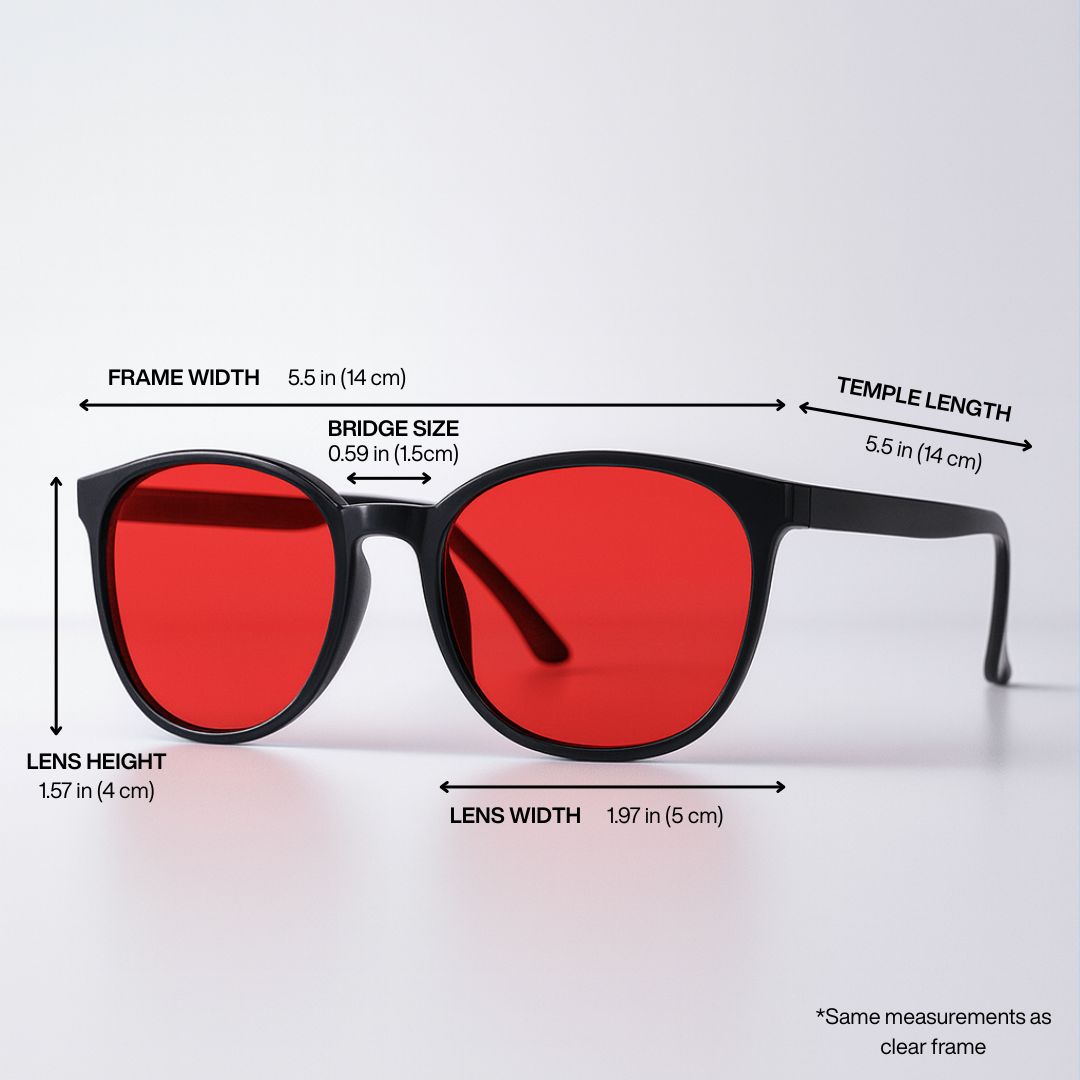












Screens wreck your eyes, sleep, and mood. These glasses fix it - naturally

|
Others | |
|---|---|---|
Blocks 99% of blue light |
||
Reduces eye strain |
||
Helps Focus |
||
Natural Deep Sleep |
||
Affordable |
Real Eyes That Realized
FAQ’s
What’s the difference between the red lens and orange lens?
What’s the difference between the red lens and orange lens?
Red lenses are best designed for nighttime use, blocking nearly 100% of blue and green light (400–520nm) to maximize melatonin production and promote deep, restful sleep. Orange lenses are ideal for daytime use, filtering a high percentage of blue light to reduce eye strain while maintaining color accuracy for tasks like work or reading.
How do blue light blocking glasses help with sleep?
How do blue light blocking glasses help with sleep?
These glasses block 99% of blue and green light (400–520nm), which suppresses melatonin production. By filtering this light, they help your body produce melatonin naturally, promoting faster and deeper sleep without supplements.
Can I wear these glasses all day?
Can I wear these glasses all day?
These glasses are comfortable for all-day wear, especially if you’re exposed to screens or artificial lights. Their lightweight, anti-slip design ensures comfort during extended use.
Do these glasses help with eye strain?
Do these glasses help with eye strain?
Yes, by blocking harmful blue and green light, these glasses reduce digital eye strain, making screen time more comfortable and minimizing fatigue, headaches, and blurry vision.
Are clear blue light glasses effective?
Are clear blue light glasses effective?
No, clear blue light glasses are largely ineffective as they only block a small percentage of harmful blue and green light. Our amber-tinted lenses are specifically designed to filter out 99% of sleep-disrupting wavelengths for maximum effectiveness.

























